what are the oaths read to you by the judge when becoming an american citizen?
Main content
Naturalization Ceremonies
Naturalization ceremonies are public events that bring communities, schools, and new citizens together in federal courthouses and other community sites throughout the twelvemonth. Schools oft ask to participate in ceremonies.
Students Welcome New Citizens to Constitutional Rights and Responsibilities
Are You Qualified to Be a Citizen?
Take this practice test and find out if you lot would pass the exam to become a naturalized U.S. Citizen.
Federal courts conduct citizenship ceremonies, which are open to the public and may be attended by hundreds and sometimes thousands of people. These of import civic events, conducted in courtrooms and at sites in the community, present an educational opportunity for promoting public understanding of the federal courts.
Schools may want to arroyo their local federal courtroom to ask if they can volunteer as role of a service-learning projection. The following are activities that some courts bring into their ceremonies.
School Participation: Options for students range from simply observing to taking an active office in the issue. Examples include students:
- Serving every bit the color baby-sit.
- Leading the Pledge of Allegiance and/or a patriotic song.
- Writing and delivering welcome letters to the new citizens at an appropriate time before, during, or after the event.
- Reading a personal essay related to the occasion.
- Greeting participants in a receiving line.
- Presenting the new citizens with flags.
- Staffing tables with information almost jury service, voter registration, and community volunteerism.
- Conducting podcast interviews with new citizens.
- Interacting with people from countries whose language they are learning.
Community Interest: Civic organizations also may want to participate in citizenship ceremonies in some of the means described here. Sometimes local members of Congress participate in naturalization ceremonies. On occasion, the media covers the events.
Some Pathways to Citizenship Get Pathways to the Federal Bench
Naturalization ceremonies are significant to every federal judge who administers the Adjuration of Citizenship. Nevertheless, for these iii judges, and many more than, the ceremony brings back memories of their ain journeying to citizenship and, ultimately, to the federal bench.
At naturalization ceremonies they preside over, U.Southward. Commune Court Guess George Z. Singal, of Maine; Ninth Excursion Courtroom of Appeals Judge Jacqueline H. Nguyen, of Los Angeles; and 2nd Circuit Court of Appeals Judge Denny Mentum, of New York; administer the same Oath of Citizenship that their parents took or that they took as young people.
In these four-infinitesimal videos, the judges talk well-nigh their respective pathways to the bench from dissimilar cultures and different parts of the world. Each agrees that swearing in naturalized citizens is a meaningful and emotional experience for them every fourth dimension they do information technology.
View U.Due south. District Court Judge George Z. Singal's pathway to the bench.
View Ninth Circuit U.South. Court of Appeals Judge Jacqueline H. Nguyen's pathway to the bench.
View Second Circuit U.Southward. Court of Appeals Judge Denny Mentum's pathway to the bench.
Source: https://www.uscourts.gov/about-federal-courts/educational-resources/annual-observances/naturalization-ceremonies
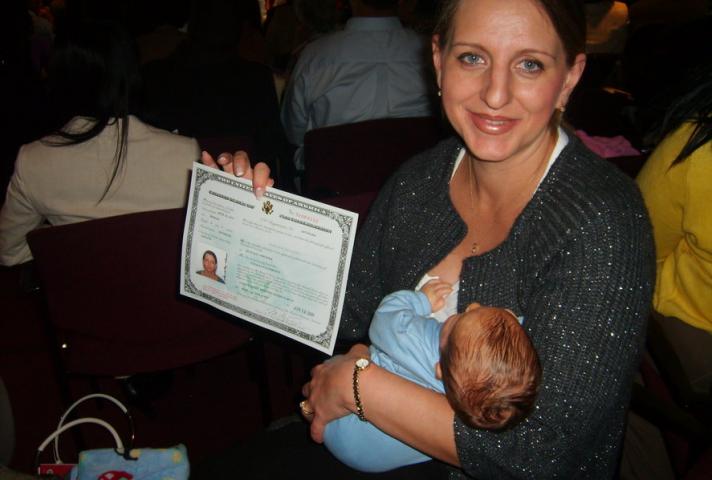
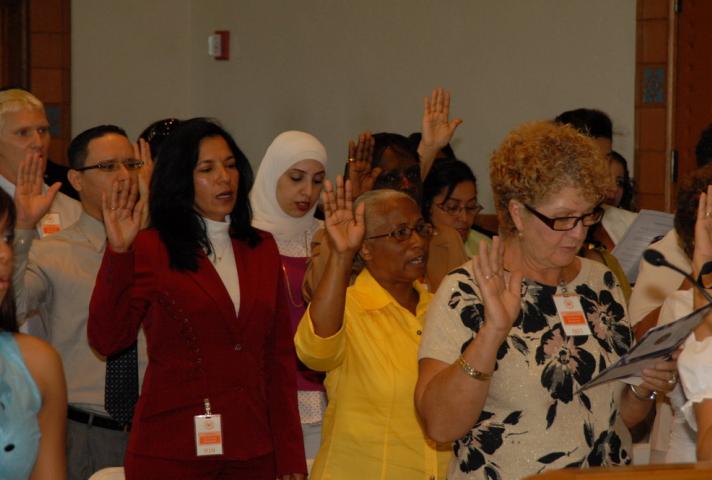
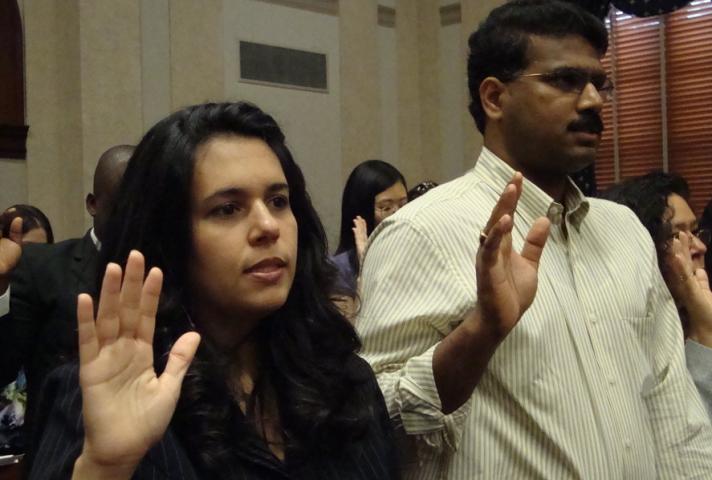
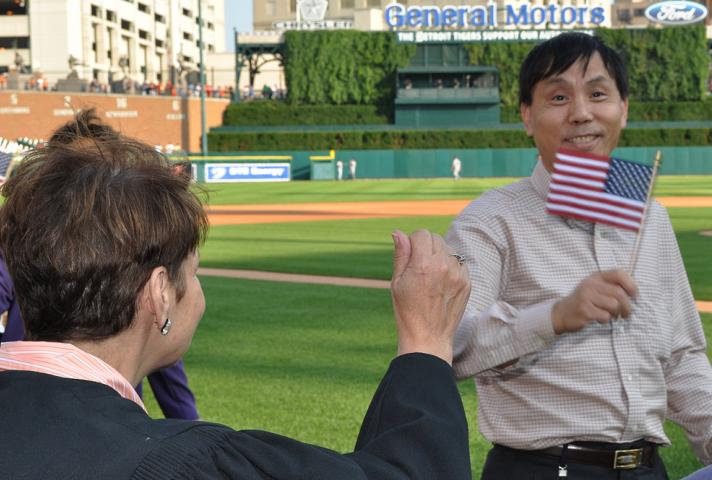
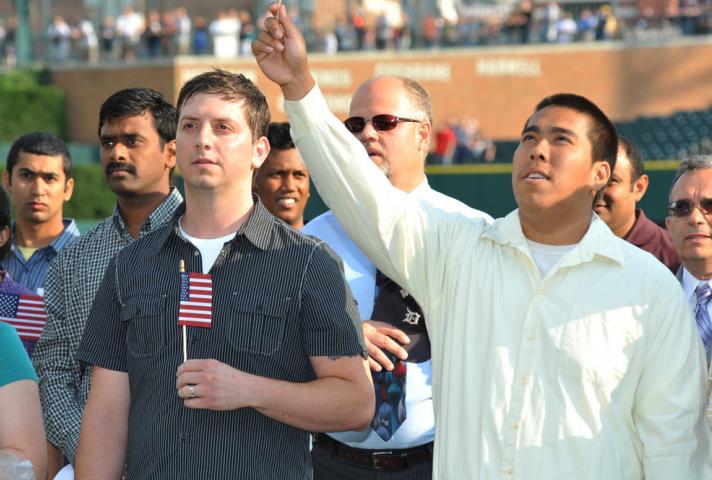
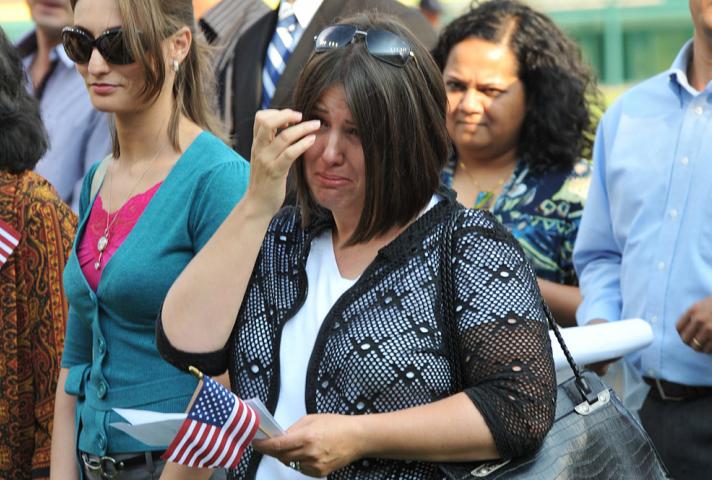
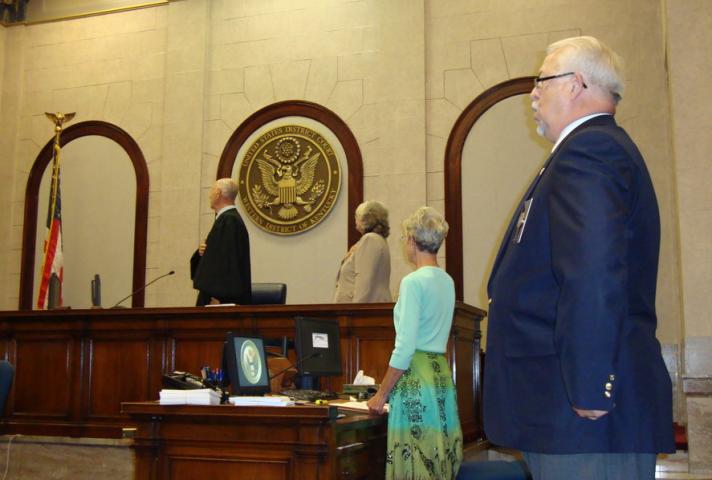
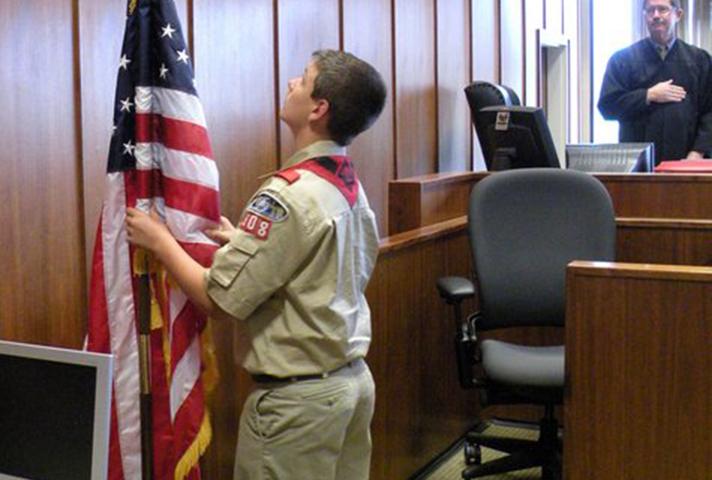
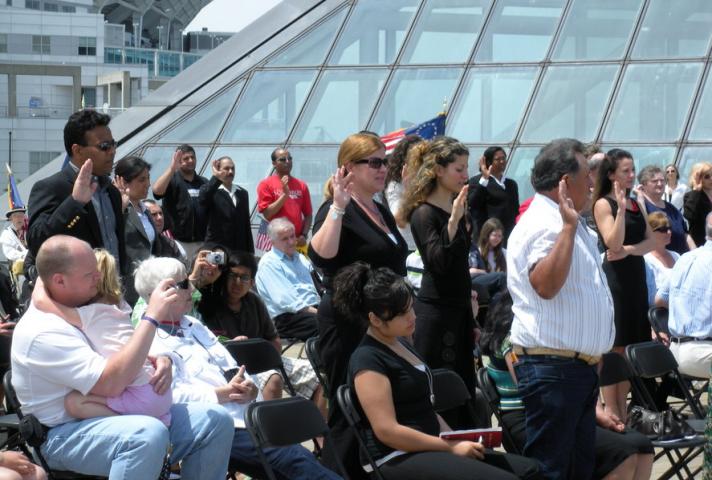
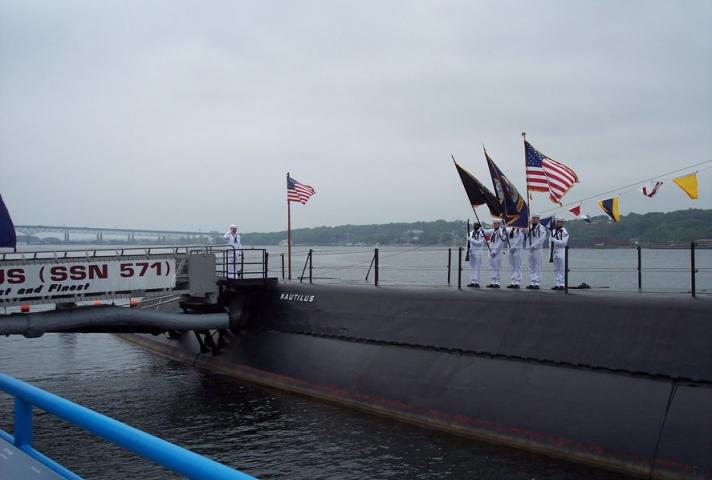
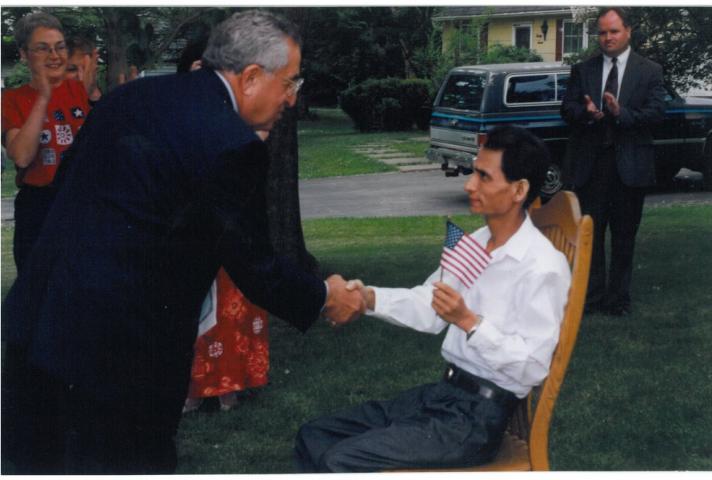
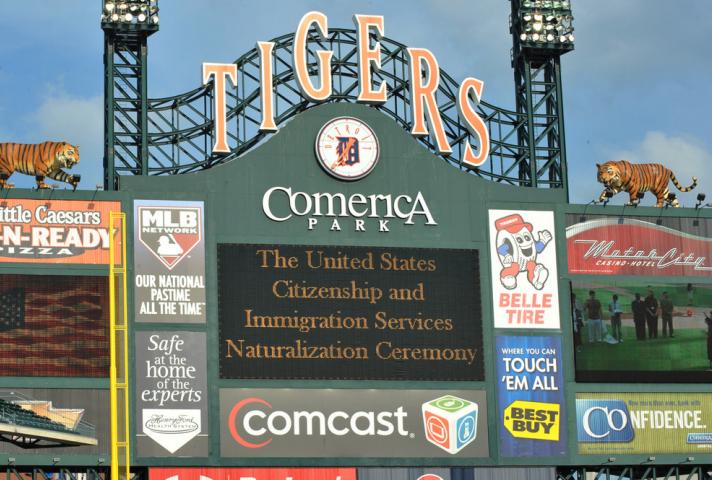
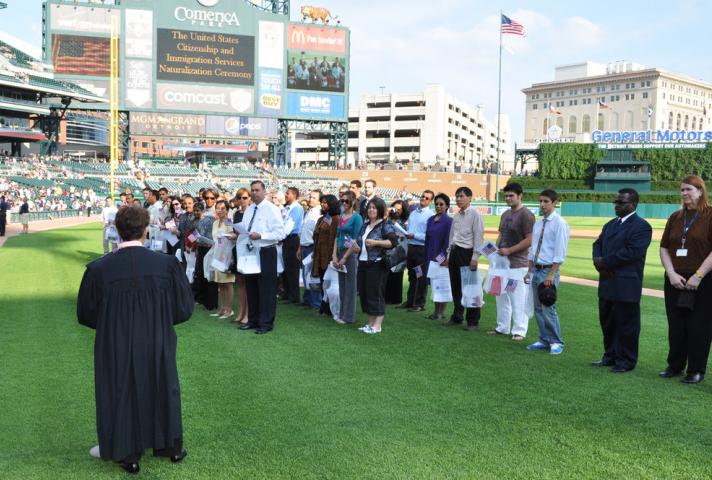
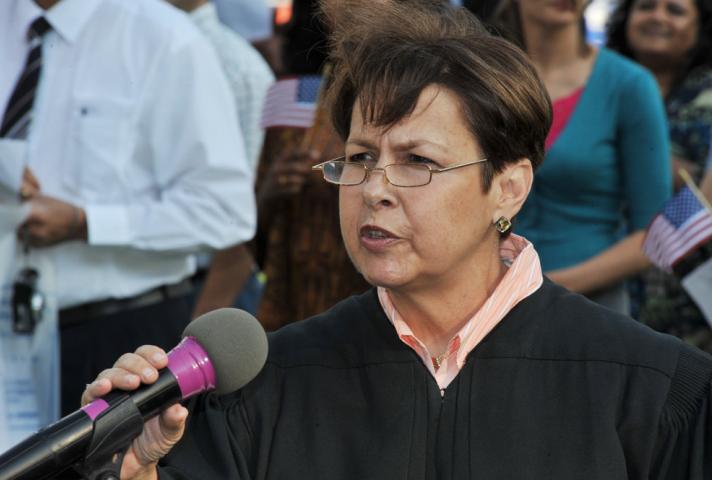
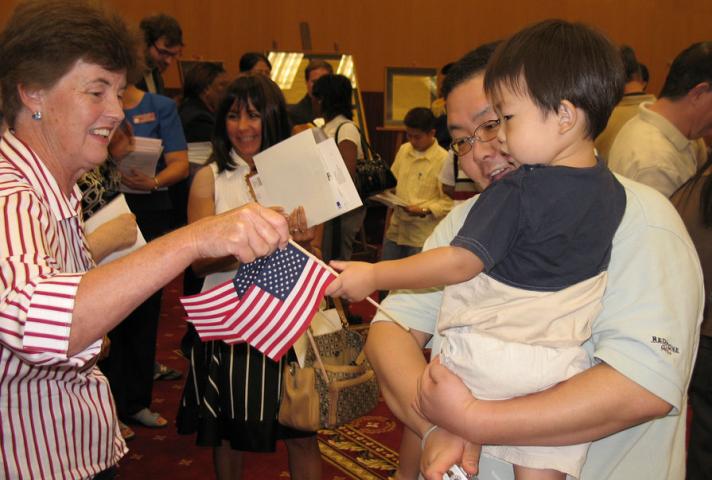
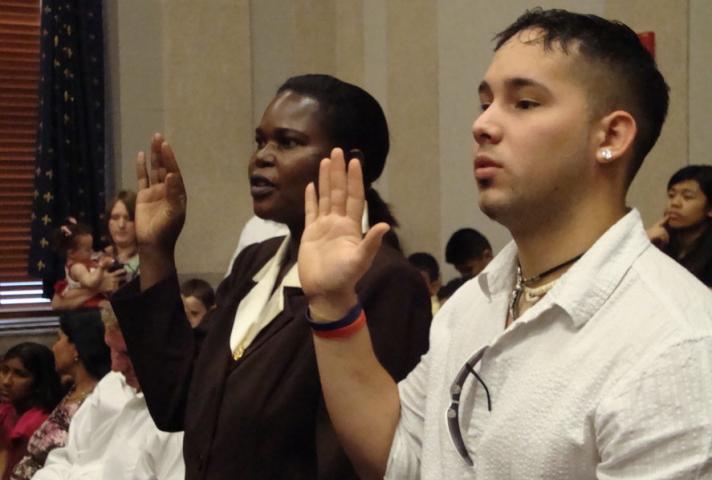
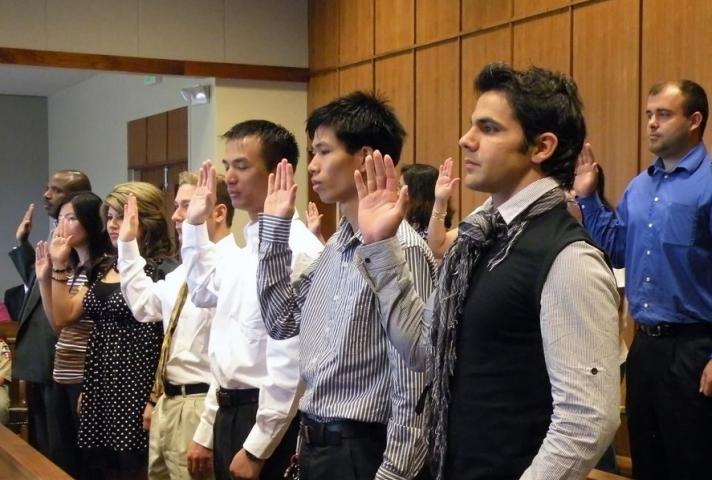
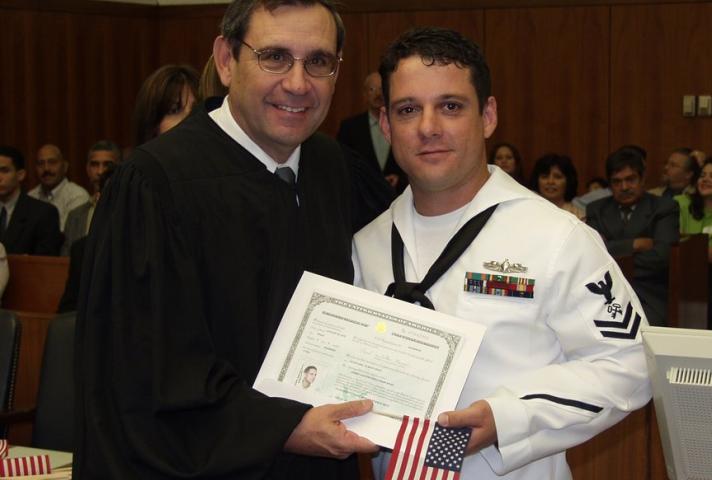
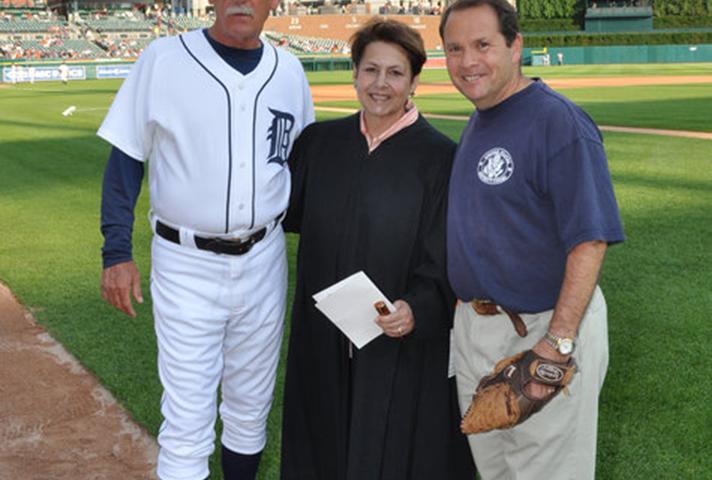
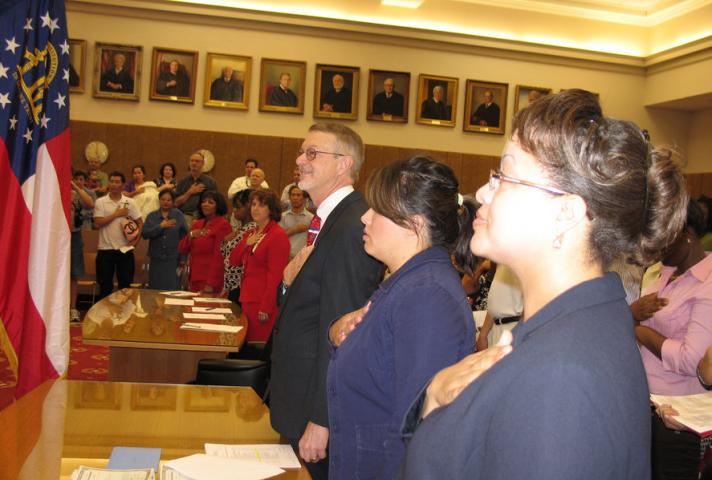
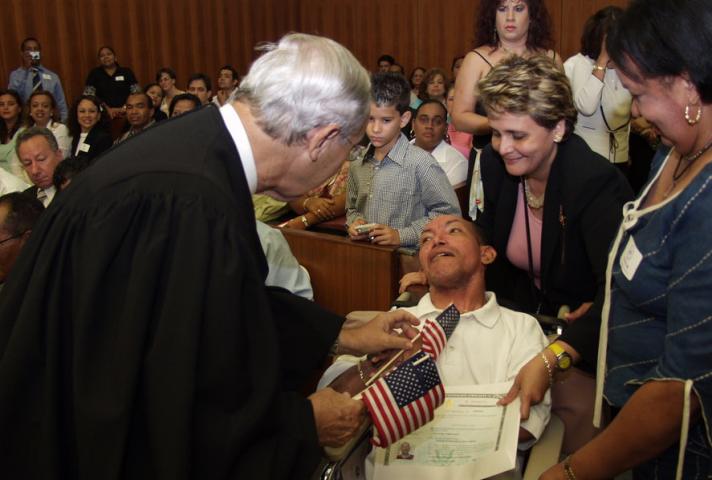
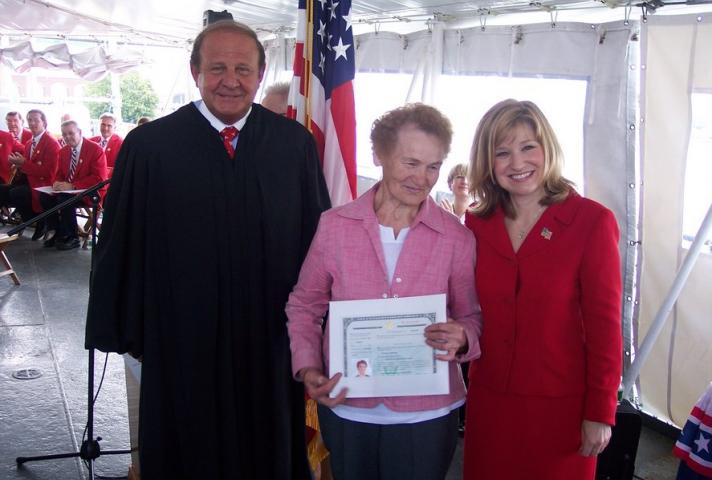
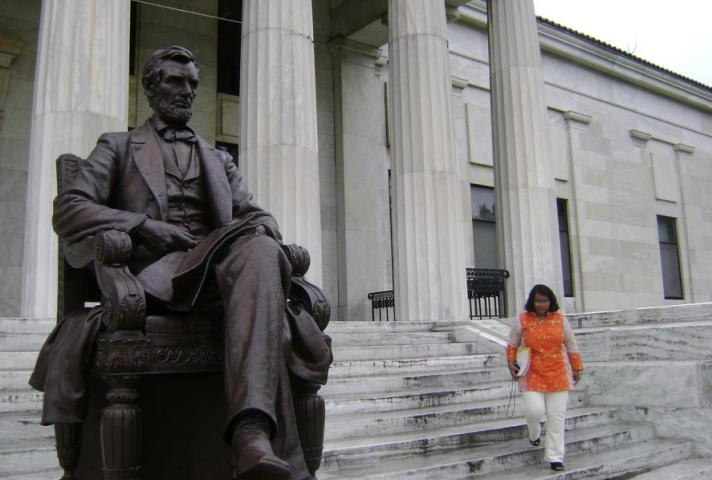
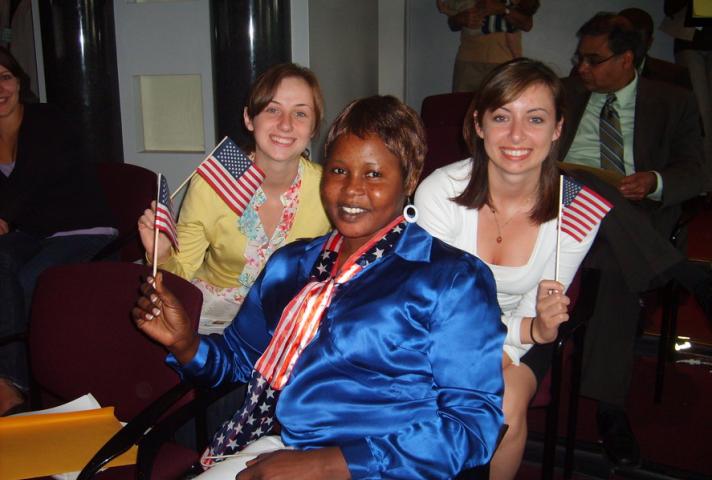

0 Response to "what are the oaths read to you by the judge when becoming an american citizen?"
Postar um comentário